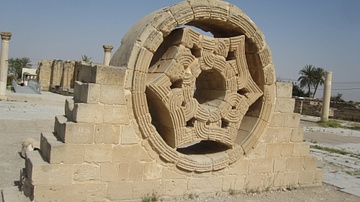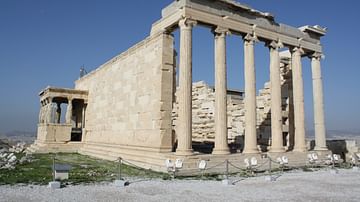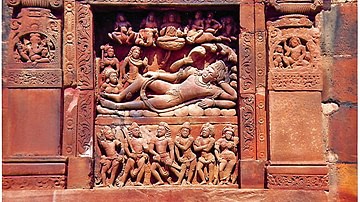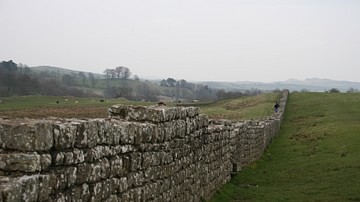Search Definitions
Browse Content (p. 262)

Definition
Hisham's Palace
Hisham's Palace at Khirbat Al Mafjar (the ruins of Mafjar) is an Umayyad structure that is listed among the last of the surviving antiquities of Romans and Byzantines. It was built by Walid Ibn Yazid in 734 CE near Jericho in the Jordan Valley...

Definition
Jade Emperor
The Supreme August Jade Emperor is the supreme deity of Chinese tradition and is otherwise known as Yuhuang Shangdi (Yu-huang Shang-ti), Yudi (Yu Ti) or Mr. Heaven (Lao-t'ien ye). He governs the cosmos and resides in a magnificent palace...

Definition
Erechtheion
The Erechtheion (or Erechtheum) is an ancient Greek temple constructed on the acropolis of Athens between 421 and 406 BCE in the Golden Age of the city in order to house the ancient wooden cult statue of Athena and generally glorify the great...

Definition
Confucius
Confucius (Kongzi) was a 6th century BCE Chinese philosopher. His thoughts, expressed in the philosophy of Confucianism, have influenced Chinese culture right up to the present day. Confucius is a larger than life figure and it is difficult...

Definition
Ganesha
Ganesha (also Ganesa or Ganapati) is one of the most important gods in Hinduism. Ganesha is easily recognized with his elephant head and human body, representing the soul (atman) and the physical (maya). Ganesha is the patron of writers...

Definition
Vishnu
Vishnu is one of the most important gods in the Hindu pantheon. He is considered a member of the holy trinity (trimurti) of Hinduism with Brahma and Shiva. Vishnu is the Preserver and guardian of men, he protects the order of things (dharma...

Definition
Hadrian's Wall
Hadrian's Wall (known in antiquity as the Vallum Hadriani or the Vallum Aelian) is a defensive frontier work in northern Britain which dates from 122 CE. The wall ran from coast to coast at a length of 73 statute miles (120 km). Though the...

Definition
Ancient India
India is a country in South Asia whose name comes from the Indus River. The name 'Bharata' is used as a designation for the country in their constitution referencing the ancient mythological emperor, Bharata, whose story is told, in part...

Definition
Column
The column was an architectural invention that allowed for the support of ceilings without the use of solid walls. Columns increase the space which can be spanned by a ceiling, allowing the entrance of more light. Columns also offer an alternative...

Definition
Caryatid
Caryatid is the name given to an architectural column which takes the form of a standing female figure. The first examples come from ancient Greek architecture and indeed, the most celebrated examples are found in the south porch of the Erechtheion...